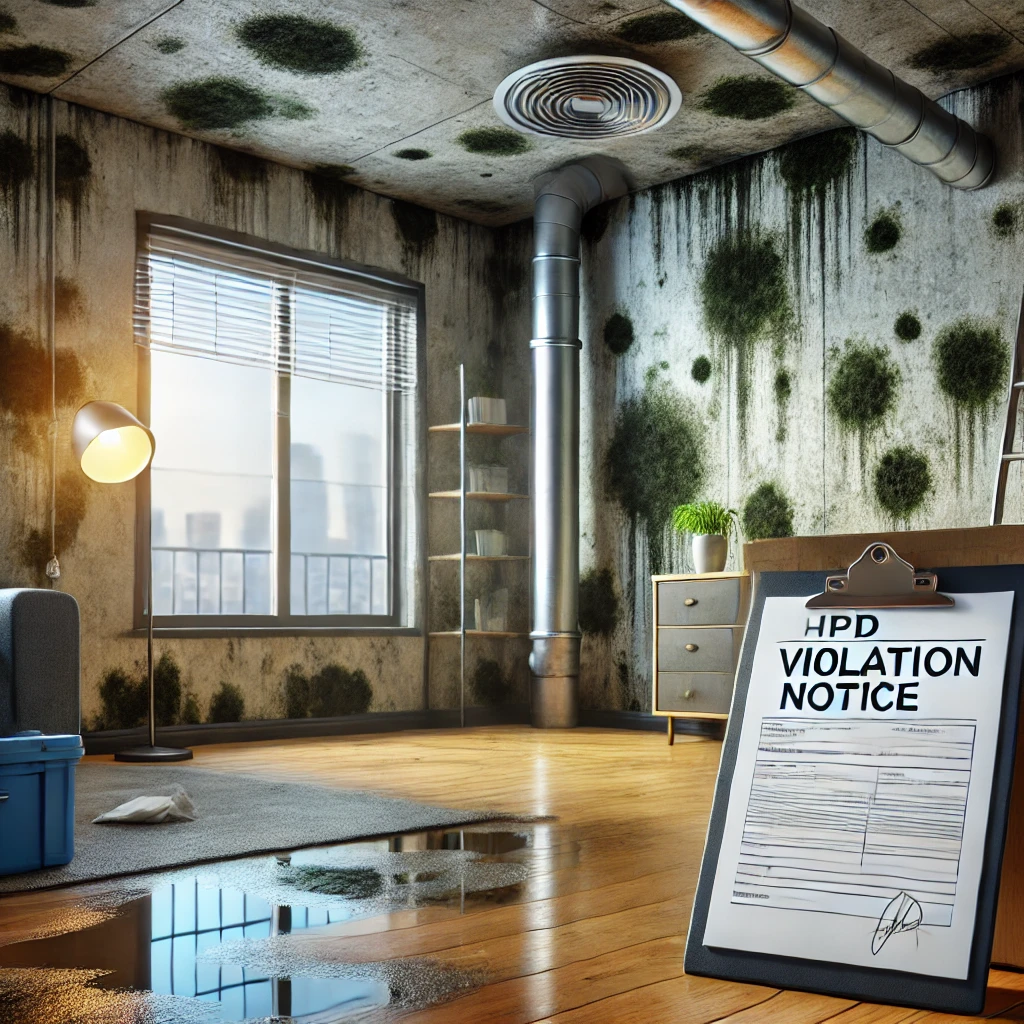Mold is more than just an eyesore—it can pose serious health risks and lead to significant legal trouble for property owners in New York City. The Housing Preservation and Development (HPD) department enforces strict regulations regarding indoor mold conditions, and violations can result in costly penalties. In this guide, we’ll break down everything property owners need about HPD mold violations, how to stay compliant, and what to do if you receive a violation.
What Are HPD Mold Violations?
HPD mold violations are issued when indoor mold growth exceeds acceptable levels, particularly in residential buildings. Mold can develop due to persistent moisture problems, leaks, or poor ventilation, creating an unhealthy living environment. Under Local Law 55 of 2018, landlords must maintain mold-free conditions and promptly address any water or moisture issues.
Common Causes of Mold Violations
- Leaky Pipes or Roofs: Water intrusion provides the perfect breeding ground for mold.
- Poor Ventilation: Areas with inadequate airflow, like bathrooms and basements, are prone to mold growth.
- Flooding or Water Damage: If not properly dried, water damage can quickly lead to mold infestations.
- Humidity and Condensation: High humidity levels encourage mold growth, especially in warm climates.
HPD Violation Classifications
HPD classifies mold violations based on severity:
- Class A (Non-Hazardous): Minor mold issues that require corrective action but do not pose an immediate risk.
- Class B (Hazardous): Significant mold presence requiring prompt remediation.
- Class C (Immediately Hazardous): Extensive mold growth posing severe health risks, demanding urgent remediation within 24 hours.
How to Address an HPD Mold Violation
If you receive an HPD mold violation, here’s what you should do:
- Inspect and Identify the Source: Find and address the moisture problem causing mold growth.
- Hire a Certified Mold Remediation Professional: NYC requires licensed professionals for mold cleanup in larger areas.
- Follow HPD’s Remediation Guidelines: Ensure all remediation steps comply with Local Law 55.
- Request a Reinspection: Once the issue is resolved, request an HPD reinspection to remove the violation from your record.
Preventing Mold Violations
To avoid future violations, property owners should:
- Conduct regular inspections for leaks and moisture problems.
- Improve ventilation in high-humidity areas.
- Respond quickly to tenant complaints about mold or water damage.
- Use mold-resistant materials in construction and renovations.
Conclusion
HPD mold violations can be costly and harmful to tenants’ health. By staying proactive and addressing mold issues promptly, property owners can maintain compliance, prevent legal troubles, and ensure a safe living environment for their tenants. If you suspect mold in your building, take action now to prevent violations before they occur.
Need help with an HPD mold violation? Contact a professional mold remediation service today!


